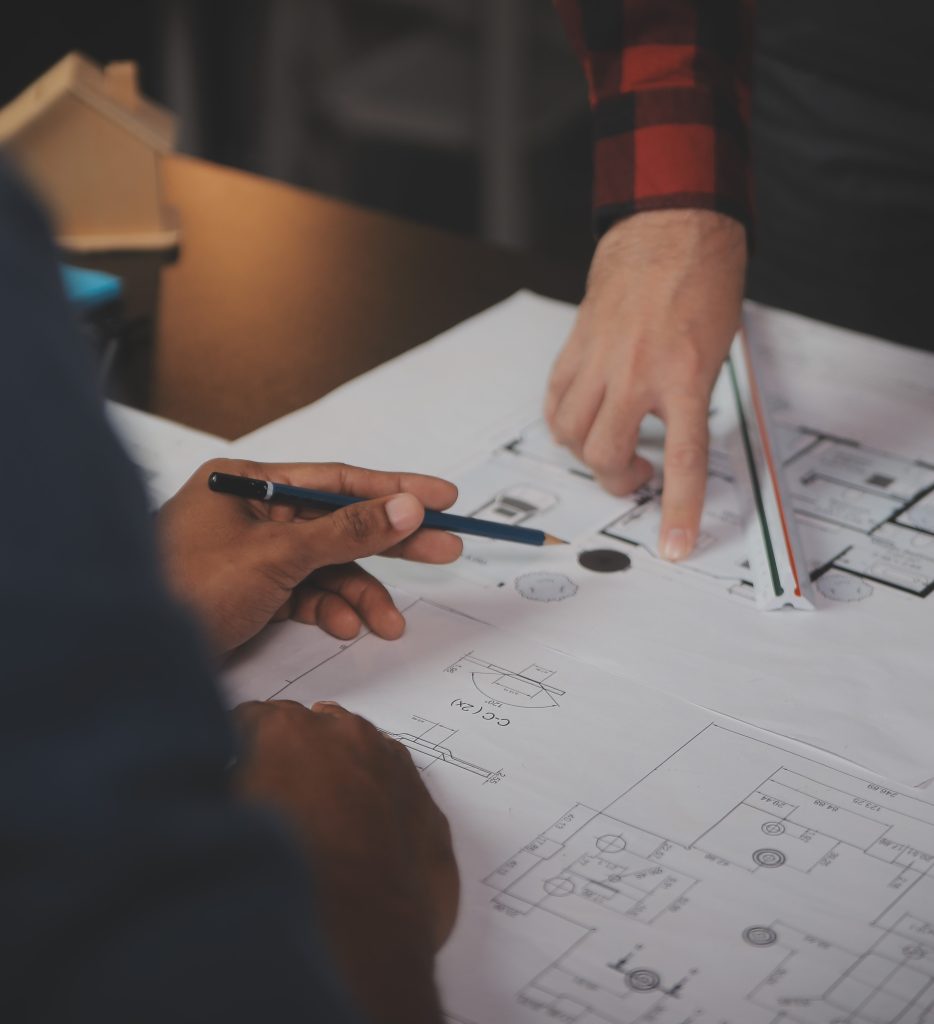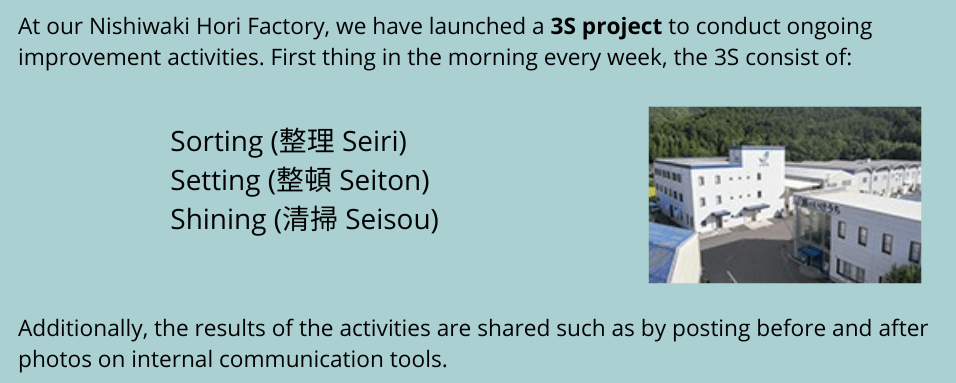November 10, 2023
Optimizing Excellence: Lean Management at IKEUCHI

Striving for perfection with lean management
In the intricate domain of high-quality spray nozzles and humidification systems, a profound philosophy prevails – the pursuit of continuous improvement. At IKEUCHI, we wholeheartedly embrace the power of lean principles, striving for perfection as part of our cultural fabric. This steadfast commitment to continuous improvement encapsulates our collective journey towards engineering excellence and unwavering dedication to customer satisfaction.
Why Lean Management is crucial in engineering processes
In engineering, precision and efficiency are paramount. Lean management helps us streamline our operations, eliminate waste, and enhance overall productivity. In an industry where precision is non-negotiable, lean principles enable us to deliver high-quality products while maintaining cost-effectiveness.
Our pursuit of excellence encompasses three fundamental pillars that form the bedrock of our continuous improvement journey:
- People: By empowering our employees, providing them with the skills and knowledge needed to excel, and fostering a culture of participation, we harness their potential to drive quality and efficiency to new heights.
- Process: In our pursuit of perfection, we prioritize not only product precision but also the seamless flow of our work processes.
- Purpose: Our commitment to Lean Management extends far into the future, guided by our long-term goals and continuous risk management and testing.
PEOPLE – PROCESS – PURPOSE
Empowering people
Skill development: We commit to ongoing learning to ensure that our employees remain at the forefront of industry advancements. We prioritize skill development through on-the-job training (OJT). Each term, we create a skills chart to identify the specific skills that need enhancement. We complement OJT with regular safety and health courses as well as external training opportunities.
Communication: Open and effective communication is vital to our success. Weekly activities include quality improvement initiatives, process meetings, complaint eradication meetings, and development meetings. When challenges arise, cross-departmental collaboration is the norm, ensuring that the right actions are taken at the right time.
Participation: Employees at our production section are actively engaged in quality and cost improvement endeavors. They contribute to various aspects, such as maintenance of production machines, extension of tool life, reduction of machining man-hours, minimized setup time, and improved post-processing evaluation methods.

Improving work processesWorkflow: Weekly process meetings in each production section ensure a smooth workflow. Our design, management, and quality control sections also actively participate. When the workload becomes challenging, we encourage cross-sectional support. Resource management: We analyze material usage and maintain order points. Monthly monitoring of electricity and water consumption allows us to manage and reduce usage effectively. Simple practices like turning off lights when not needed and using energy-efficient compressors during non-working hours contribute to our commitment to resource efficiency. |


Creating purpose
Long-term goals: Each of our factories has well-defined long-term goals, covering quality, efficiency, emission reduction, and waste reduction.
Leadership: Effective leadership is crucial; quick decisions, clear communication with production managers, plant managers, and department heads ensure the successful achievement of our goals.
Risk elimination: A product design system for risk assessment is in place to ensure user safety. Using various quality methods such as FMEA, we carry out design evaluations and product reliability assessments to ensure that our customers can use our products safely


